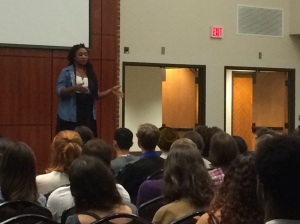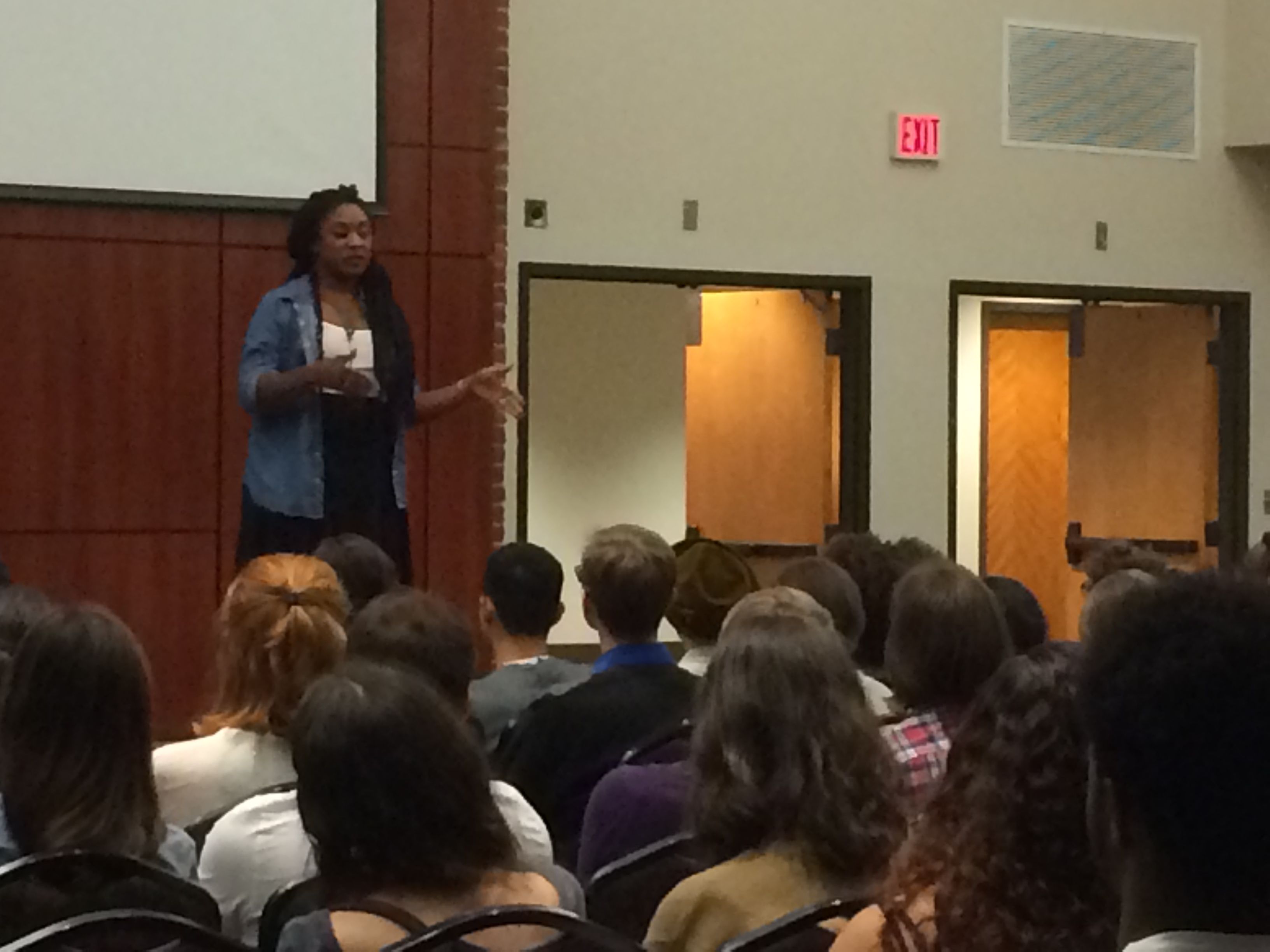
Students filed in at 8 p.m. Sept. 15 to hear a CLP talk: “#BlackLivesMatter: The New Civil Rights Movement.” The event was put together over the course of a few months by the school’s NAACP, EROS and SLBC chapters with help from the Student Diversity Council.
The CLP featured Alicia Garza, one of the cofounders of the Black Lives Matter movement. In addition to coining the phrase for the movement, Ms. Garza has played a large role in the sustaining the movement and spoke on Black Lives Matter in terms of its story, politics and future.
Black Lives Matter is an activist movement conceived during the acquittal of George Zimmerman and sprung to life when Michael Brown was murdered in Ferguson.
Before she dove into the subject, Ms. Garza spoke of a parable saying, “Until the lion has its own historian, tales of the hunt will always glorify the hunter.”
Garza discussed the injustice of the Zimmerman trial, citing the lack of investigation into Trayvon Martin’s death.
“What words are appropriate when an adult kills a child?” she said.
Garza found online protests to the case divisive and inefficient. She strove to build a new paradigm for black rights activism, one without cynicism, one that targeted the real problems. So on Twitter, Ms. Garza posted a letter, what she called “a love letter to black people,” which ended with “#BlackLivesMatter.”
The room was silent during her stories of Michael Brown, Eric Garner, Sandra Bland and many others. She also addressed #AllLivesMatter, a backlash in response to the movement.
“Yes all lives matter,” Garza said, “but that’s not the world that we live in. Some lives matter more than others.”
The statement received a polarized reaction from the audience. Many nodded in agreement, but others sat in uncomfortable silence or whispered rebuttals to her opinion.
A large part of Garza’s message was drawn from statistics, especially to discuss racial discrepancies in the American criminal justice system.
“Today, one in eight black men in their 20s will be in jail and black women are three times more likely to be in prison,” Garza said. “Slavery continues today in the prison system.”
The biggest question for Garza was where the movement was headed. She noted that there is still a lot to do, especially with popular conservative critics like Bill O’Reilly and Donald Trump treating Black Lives Matter as a hate organization.
Junior Emma Zyriek, president of EROS, appreciated that the talk also highlighted intersectionality of black rights and LGBT rights, as often the combination of these identities produces an even greater challenge to the individual.
“Recently, there have been a lot of black transgender women who have been murdered,” Zyriek said, “and that is something that the movement has been very passionate about.”
The CLP cosponsors intentionally worked together to produce this intersectionality from the very beginning. At the end of the event Garza urged those in attendance to continue the conversation and organize among themselves.
Photo courtesy of Amanda Richey
